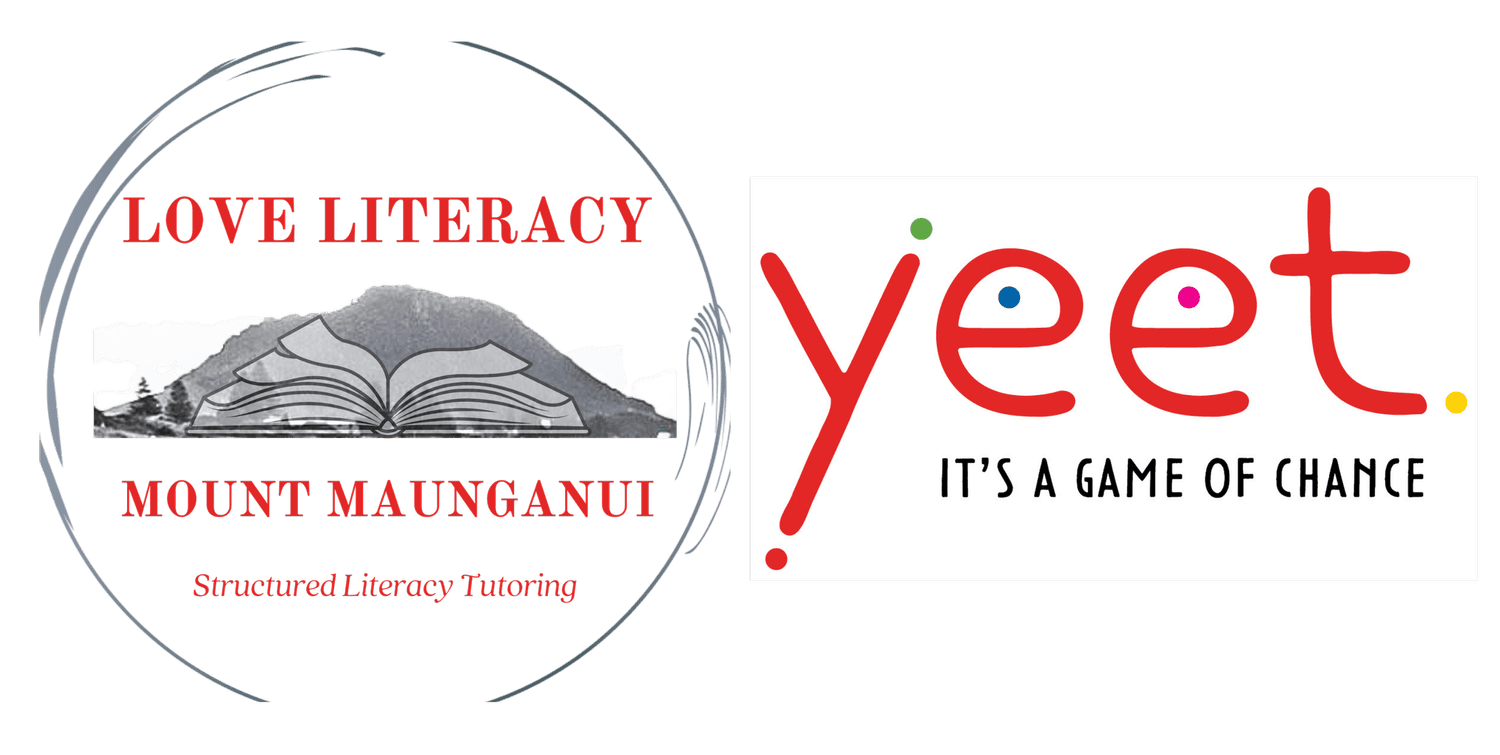At Love Literacy, we provide evidence-based support for reading, writing, and spelling, using a Structured Literacy approach. We help any learner who needs additional support, including those with dyslexia and other neurodiverse learning difficulties.
Our process is simple and effective:
We begin with an initial diagnostic literacy assessment.
We create a comprehensive and detailed learning plan that highlights both areas needing support and your learner’s strengths.
Tutoring sessions are available one-on-one or in small groups of no more than two learners. You can choose to have sessions face-to-face or via Zoom.
About Me:
Heather, Specialist Educator
My name is Heather, and I’m a Specialist Educator providing evidence-based learning support. While my career didn’t start in education, my journey has shaped me into the teacher I am today.
When my eldest child was diagnosed with dyslexia, dyscalculia, and dysgraphia, our family struggled to find understanding and support for neurodiverse learners. This experience inspired me to realign my career. I wanted to help my son and other families who felt lost, not knowing where to begin or who to turn to for help with reading, writing, and spelling.
In 2019, I completed a year-long SPELD program, earning the New Zealand Certificate in Teaching Individuals with Specific Learning Disabilities. I then worked as a Specialist Educator for a private tutoring service. In 2024, I became IMSLE Certified and am now an accredited MSL specialist. I now work independently to provide evidence-based learning support.
In 2025, I launched my own podcast, Love Literacy – Inspired, where I chat with inspiring New Zealanders (and beyond!) about their literacy journey. To hear more about my story, you can watch my conversation with Arti from Human Chapters here.
About Yeet:
It all started with a simple idea: sharing a literacy game we played during tutoring sessions that students already loved. Repetition is crucial for building neural pathways, and what better way to do it than with a fun game that adds an element of thrill to learning?
We now have 14 versions of ‘yeet’ to support a wide range of literacy skills:
CV VC & CVC words
Blends, digraphs, and silent e words
Soft C & G words
Words with r-controlled vowels (er, ir, ur)
Words with longer spelling rules (floss, ck, tch, dge)
Multisyllable words
Ar/Or, Gentle Cindy, Consonant Le, Diphthongs, and Vowel Teams
Each pack contains 54 cards: one instruction card, seven ‘yeet’ cards, and 46 vocabulary cards. The spelling rules and sounds are based on data from multiple spelling assessments, making them a great fit for any curriculum.
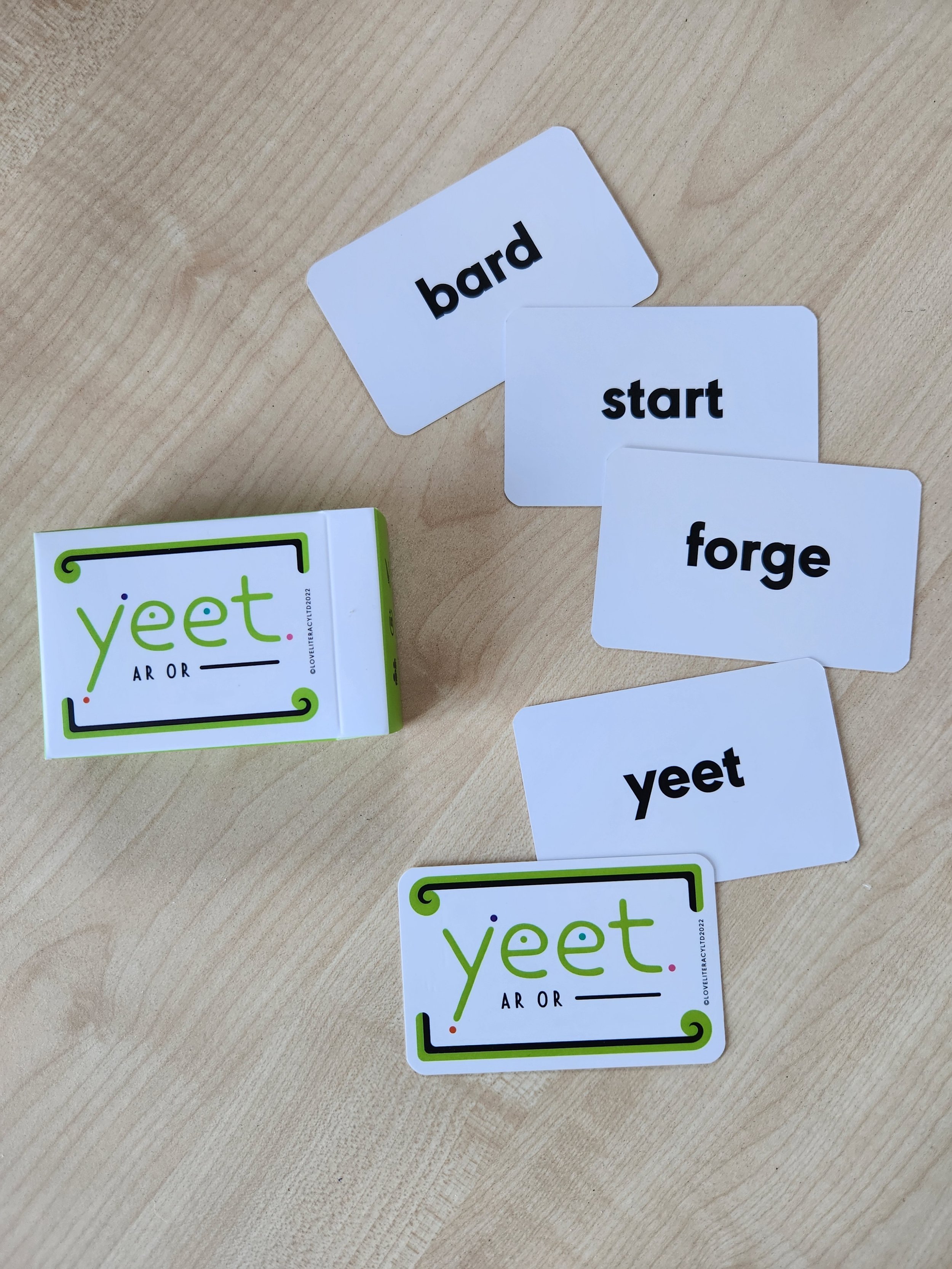
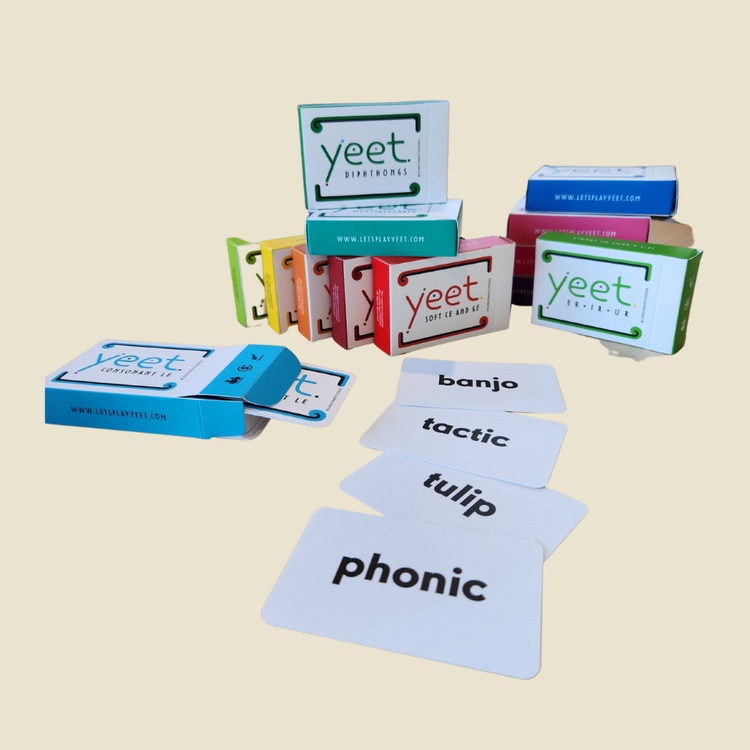
Introducing Marīkī:
Introducing Marīkī: A Te Reo Māori Reading Game
What is Marīkī? Marīkī is a fun, fast, kēmu pānui (reading game) that builds literacy skills while you have fun! The rules are simple:
Shuffle the deck.
Draw a kari (card) and pānui (read) it aloud.
When a kari marīkī is drawn, steal cards from another player.
The player with the most cards wins after all cards are drawn. This game is fun for the whole Whānau and adds a thrill to ako ki te pānui (learning to read).
Marīkī was created to make structured literacy accessible in both English and Te Reo Māori. The idea came from a conference where Mahina Selby-Law from Mahi by Mahi spoke about the lack of structured literacy games in Te Reo Māori. Her words inspired me to act.
I teamed up with my good friend Tiana from Pānui Me Te Tuhi, a dedicated structured literacy educator. Together, we created Marīkī. We would also like to acknowledge the work of Sommer Gisborne, Kaiako Akomanga Kawau at Kihikihi School for her contribution in the creation of tēnei kēmu ingoa.
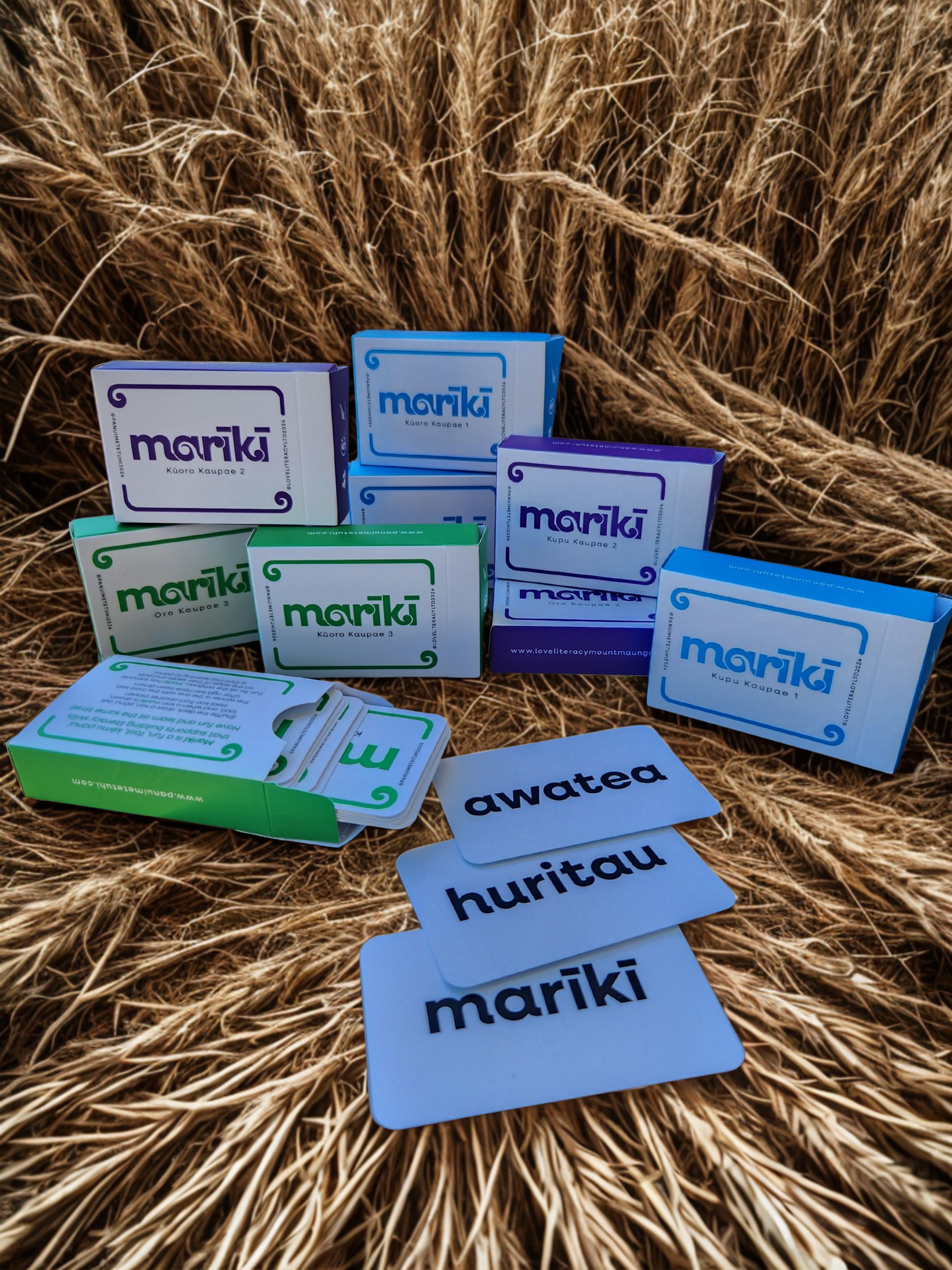
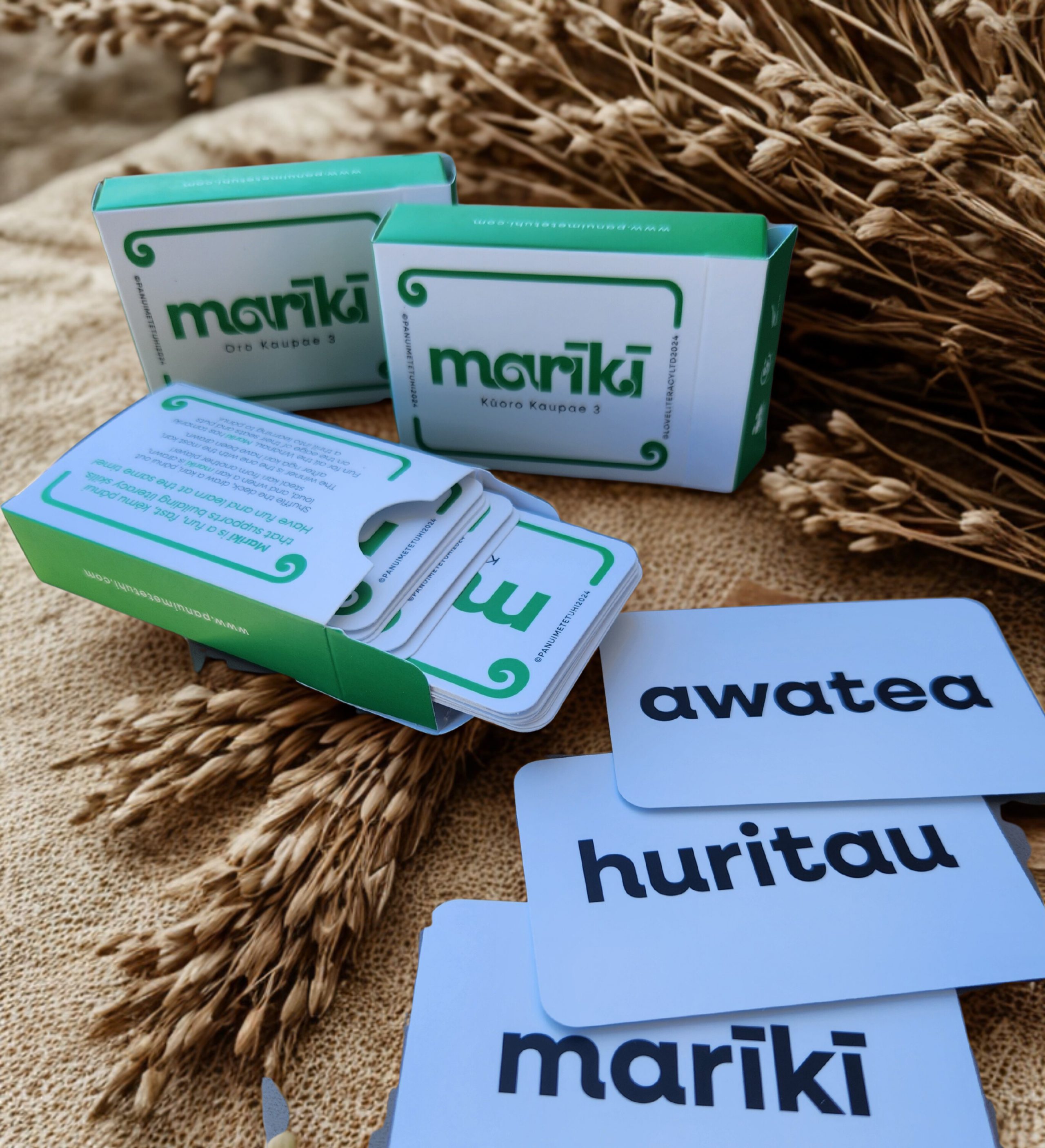
Love Literacy Mount Maunganui Vision:
At Love Literacy Mount Maunganui:-
At Love Literacy Mount Maunganui, we believe in a few core principles:
Every akonga (learner) has the right to read, write, and spell to succeed in life.
This right should not be left to chance.
We create a secure and respectful learning space.
Our teaching is based on the Science of Reading and implemented through a Structured Literacy approach.
We use and create quality learning resources that align with Structured Literacy principles.
It’s important to us to teach learners the way the brain is wired to learn, providing an empathetic, encouraging, and safe place for them to grow.
